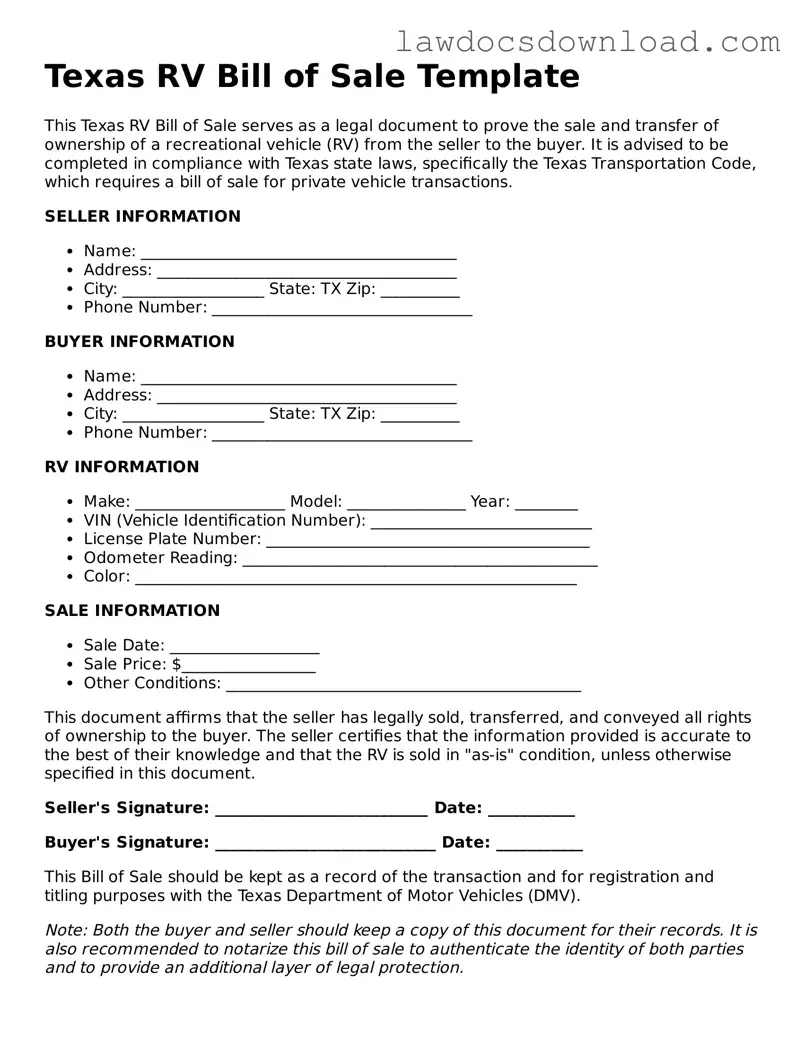Legal Texas RV Bill of Sale Form
A Texas RV Bill of Sale form serves as an official document that records the sale and purchase of a recreational vehicle (RV) in the state of Texas. This document provides vital information regarding the transaction, including details of the buyer, seller, and the RV itself, thus ensuring a clear transfer of ownership. It stands as a crucial piece of evidence to protect the rights of both parties involved in the transaction.
Launch RV Bill of Sale Editor Here

Legal Texas RV Bill of Sale Form
Launch RV Bill of Sale Editor Here

Launch RV Bill of Sale Editor Here
or
Free RV Bill of Sale
Get this form done in minutes
Complete your RV Bill of Sale online and download the final PDF.